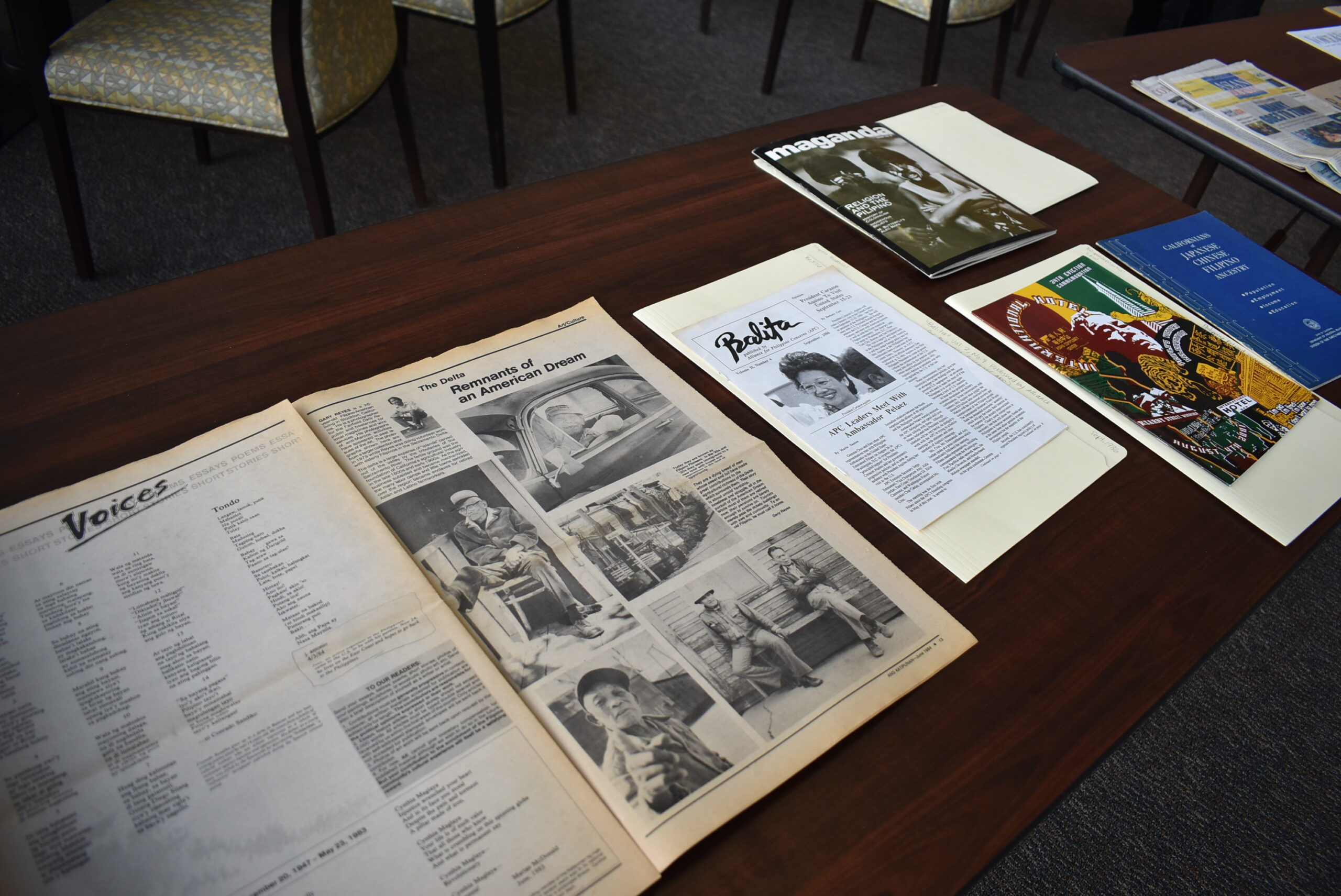Students and members of the South Bay community unite for the launch of the Filipino American Digital Archives at CSUDH. Photos by Mycah Serdenia.
By Mycah Serdenia, Staff Reporter.
“Know history, know self. No history, no self.” This quote from Jose Rizal, considered the national hero of the Philippines, is what Vincent Basobas had in mind when attending the Filipino American Digital Archive that took place earlier this month.
Basobas, who is a Filipino American, and California State University, Los Angeles, Public Health graduate, understands how the perseverance of the history of his culture is essential to knowing himself and the role he has in this world.
Basobas was one of the many students, staff, and community members that attended the launch event for the Filipino American Digital Archive, or FADA, at California State University, Dominguez Hills. The event brought together members of the Fil-Am community across Carson and the South Bay. The goal of the archive is “to preserve this history and make it available for future generations who want to learn about and write about Filipino Americans,” as stated in the CSUDH Gerth Archives and Special Collection website.
Attendees were encouraged to bring any pictures, documents, or letters that related to their Filipino families and communities. The CSUDH Gerth Archives will be scanning and digitizing these preserved documents to show the history and impact of Filipino Americans in Carson, the South Bay, and the state of California.
“I thought this was a great opportunity for us to truly learn our identity and show the impact we’ve had on the community,” Basobas said.
The city of Carson has a Filipino demographic of 25.7 %, according to the U.S. Census. “It never really dawned on me how big the Fil-Am community here in Carson really was,” Basobas said. “Compared to other parts of the South Bay, Carson seemed to carry the biggest population of us as far as I knew,” he added
For many of the attendees, the archive means so much more than just another resource for information. For Fil-Am members of the community, the archive represents a chance for future generations to fully immerse and educate themselves on the impact they have left on society.
Members of Pagsikapan, the Filipino club at CSUDH, are also excited about what this archive will represent. “With this, we are bringing forth diverse stories within the Asian diaspora,” Kimberly Overly, the club’s Cultural Chair said. Overly sees this as a great step in the right direction in re-establishing the Filipino cultural identity. Joselle Hernandez, the club’s Internal Vice President, believes this archive creates a sense of validation not only for the Filipino community but also opens the doors for more archives to be established in the future.
“The launch of the FADA not only reassured me that we belonged, it also made me even more proud to be a Filipino-American,” Hernandez said.
With FADA set to feature documents and historical pieces of Filipino work, contributors have donated writings and images to the archive. Florante and Roselyn Ibanez are one of these contributors. They are the authors “Filipinos in Carson and the South Bay,” and will be donating their published work to the archive. Their book is a pictorial history of Filipino immigration and their early history in the 1920s where many Filipinos filled the roles of farmworkers, U.S. military recruits, and other laborers across the Los Angeles region.
“It will be our youth that will carry on the history and legacy of the Filipino,” Roselyn said. She mentions that preserving and writing about the past will provide a deeper understanding of where Filipino Americans came from and their contributions to society.
“For a lot of Filipino history, it tends to just vanish,” Roselyn said. “So much goes unnoticed, but having something like an archive will make sure those pieces of history don’t disappear ever again.”
Basobas hopes the next generation dives into the rich history of their ancestors and overwhelm themselves with the knowledge that they can be learning from these documents and images.
“I think that there’s so much that these archives could do,” he said. “It will help them know their identity and help understand their culture on a broader scale.”
The Gerth Archives has created a process for those who would like to donate letters, photographs, and any other documents related to telling the Fil-Am story. If you are interested in contributing and browsing the collection, click here.

